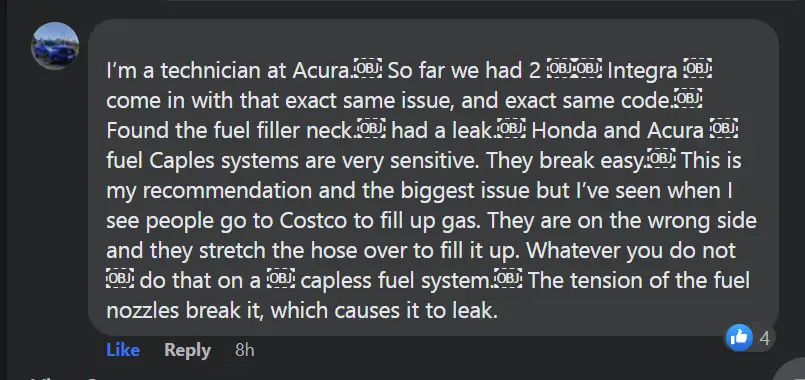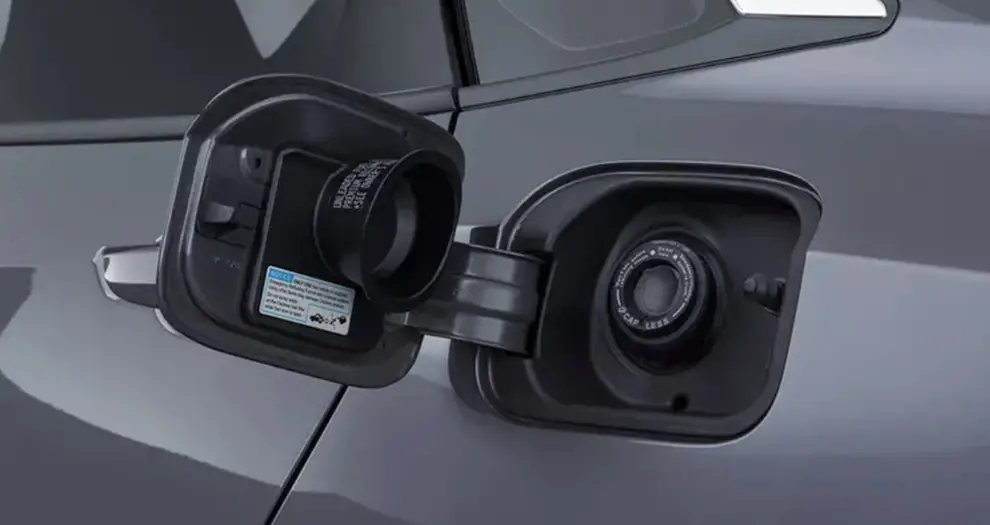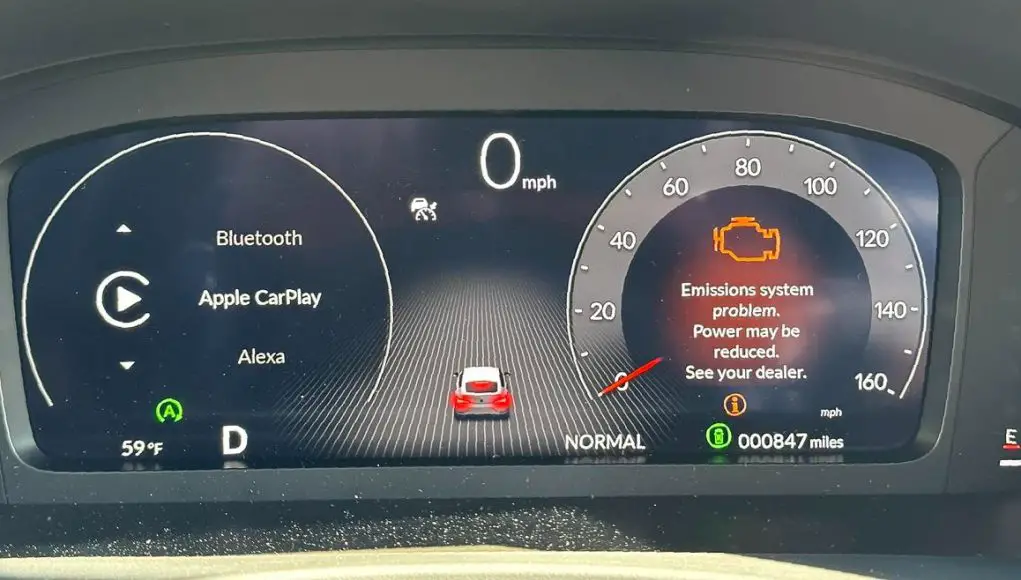A certified Acura technician gave his definitive answer why you’re getting a P0455 P0456 DTC.
If you’re in your fairly new Honda or Acura get a troubling message on your dash saying “Emissions systems problem. Power may be reduced. See your dealer,” and get the codes P0455 and P0456 on your scan tool, chances are you shouldn’t sweat it.
A new Acura Integra owner on a 2023+ Acura Integra owners and enthusiasts Facebook group shared how they got the aforementioned warnings and codes, and, stressed out as he was, said tech reassured him he’s seen this before and it’s probably going to be A-OK.
First, here’s the warning screen he saw and what popped up on his DIY scan tool.
And, here’s what the Acura tech had to say.

“I’m a technician at Acura. So far we had 2 Integras come in with that exact same issue, and exact same code.”
“Found the fuel filler neck (is the issue.) (They) had a leak. Honda and Acura fuel Capless systems are very sensitive. They break easy.”
“This is my recommendation and the biggest issue, but I’ve seen when I see people go to Costco to fill up gas. They are on the wrong side, and they stretch the hose over to fill it up. Whatever you do, do not do that on a capless fuel system. The tension of the fuel nozzles break it, which causes it to leak.”
Here’s what the capless fuel filler system looks like on these newer Hondas and Acuras.

Presumably, you can confirm your capless fuel filler system is at fault by inspecting the fuel filler neck with a bright light (try your smart phone,) looking for tiny cracks where air can seep in, detrimental to a closed-loop emissions system.
A new capless fuel unit is about $150 new from Honda. Plus labor, and you’re looking at less than $300 out the door.
If you’re still under warranty, this should technically be covered.
If you notice no discernible difference in driving (no reduced power) with these codes on, and you’re someone who just jams the fuel nozzle into the capless fuel filler and/or are a fuel hose stretching repeat offender and are fairly certain that’s the issue here, it stands to reason you can safely ignore said codes.
You will eventually have to fix the issue as most states require no emissions related DTC codes on your annual/biennial smog test.
After you get it fixed and clear the codes, take what that Acura tech said to heart, be somewhat careful refueling, making sure you don’t man handle the fuel filler nozzle into Honda’s notoriously fragile capless fuel filler system.



